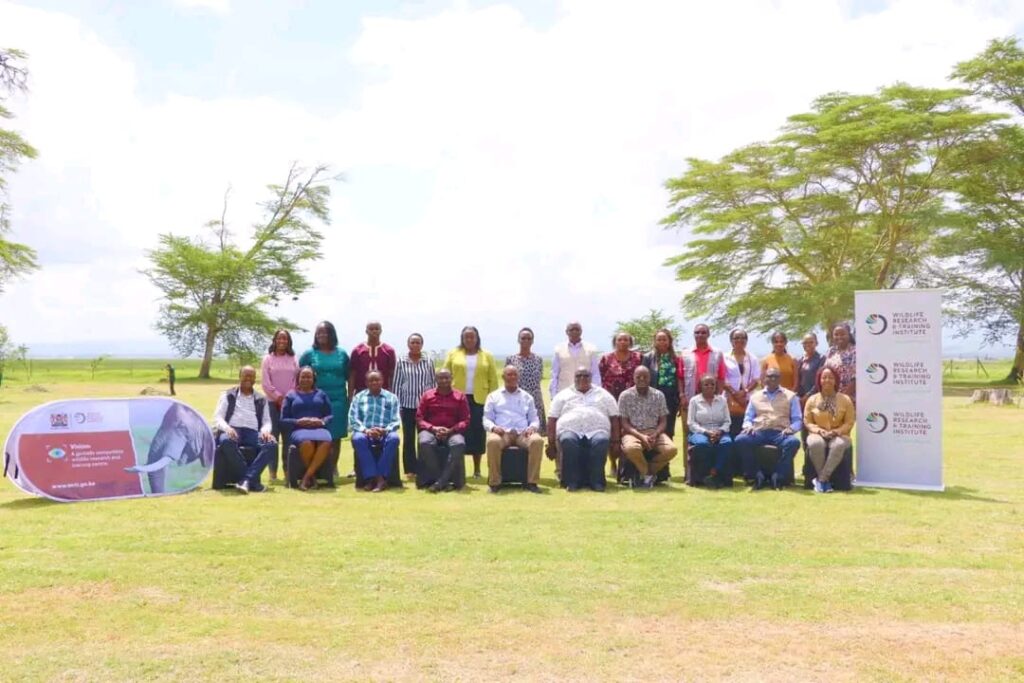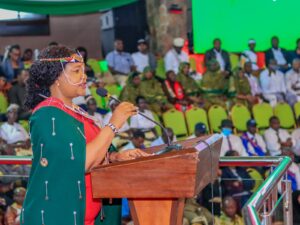Wildlife Research and Training Institute Embarks on Policy Refinement Retreat to Strengthen Strategic Goals

The Wildlife Research and Training Institute (WRTI) has taken a significant step towards enhancing its operational framework and governance. Today, board members and senior management convened for a high-level retreat aimed at reviewing and refining the Institute’s policies. This initiative is a deliberate effort to align its operations with the recently unveiled Strategic Plan (2023–2027) and to ensure the Institute remains a leader in wildlife research and training in Kenya.
The retreat, described as a cornerstone activity for the Institute, underscores WRTI’s commitment to staying responsive and relevant in an ever-changing conservation landscape. Speaking at the opening session, the Chair of the Board, Dr. David Nkendiaye, emphasized the importance of policy reviews in maintaining organizational dynamism.
“Policy reviews are crucial for organizations to remain dynamic and responsive to emerging challenges and opportunities,” Dr. Nkendiaye remarked. “For the Institute, this exercise ensures that its frameworks, guidelines, and operational strategies are in tune with the evolving wildlife research landscape. The updated policies will provide clarity, foster accountability, and empower the Institute to navigate complexities in wildlife management more effectively.”
Echoing Dr. Nkendiaye’s sentiments, WRTI Director Dr. Patrick Omondi highlighted the retreat’s role in bolstering the Institute’s governance and operational excellence.
“With our key mandate on wildlife research and training, it is our responsibility to ensure that our institutional policies are robust, forward-looking, and adaptable to the changing needs of the industry,” said Dr. Omondi. “This retreat marks a pivotal step in reinforcing our governance framework and enabling the Institute to achieve its mission with renewed vigor.”
The retreat also serves as an opportunity to integrate the principles of the BETA framework, a system designed to drive efficiency and accountability within the Institute. This alignment is expected to bolster WRTI’s capacity to conduct cutting-edge wildlife research, promote conservation education, and influence policy at both national and regional levels.
WRTI’s Strategic Plan (2023–2027) prioritizes operational efficiency, stakeholder engagement, and innovation in wildlife conservation and management. By revisiting its policies, the Institute aims to create a foundation for transformative research and training programs that address pressing conservation challenges such as climate change, habitat loss, and human-wildlife conflict.
As the retreat progresses, stakeholders anticipate a comprehensive review that will culminate in a robust policy framework tailored to meet current and future demands in wildlife conservation. For WRTI, this exercise is not just about refining policies but also about reaffirming its position as a driving force in wildlife research and conservation across the region.
This policy review is expected to unlock new possibilities for the Institute to achieve its mission with clarity and purpose, reinforcing its commitment to conserving Kenya’s rich biodiversity for generations to come.





